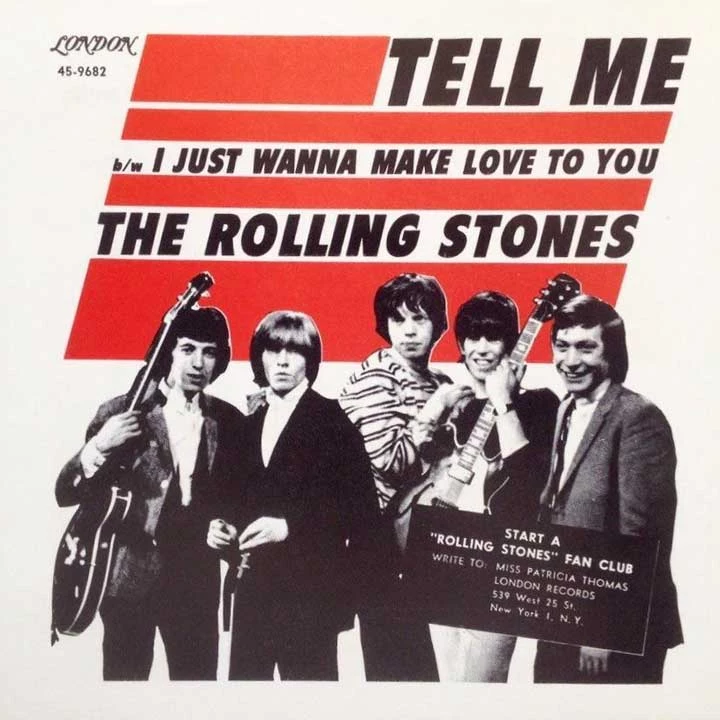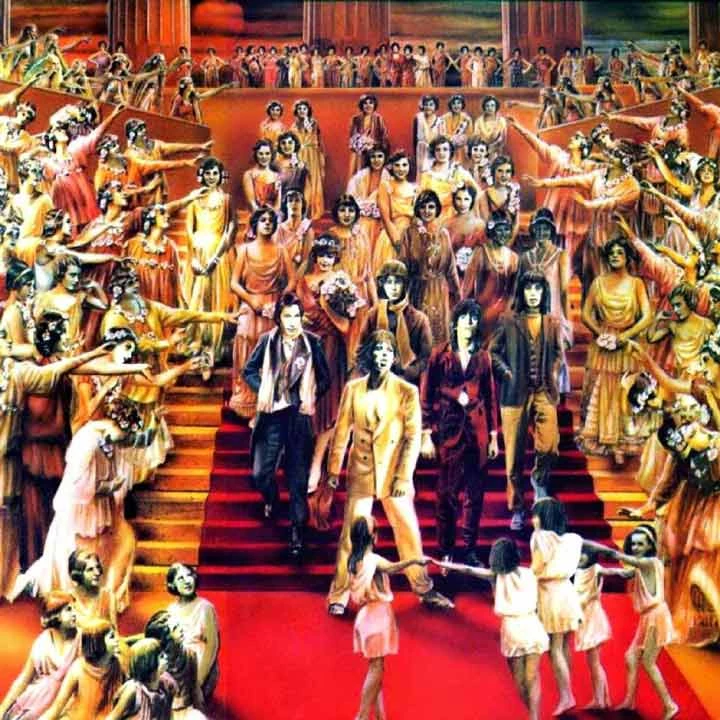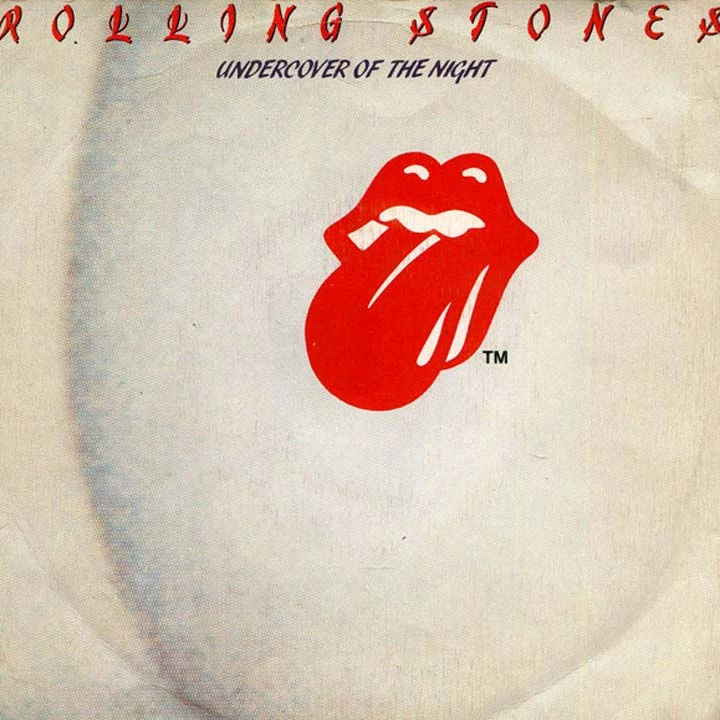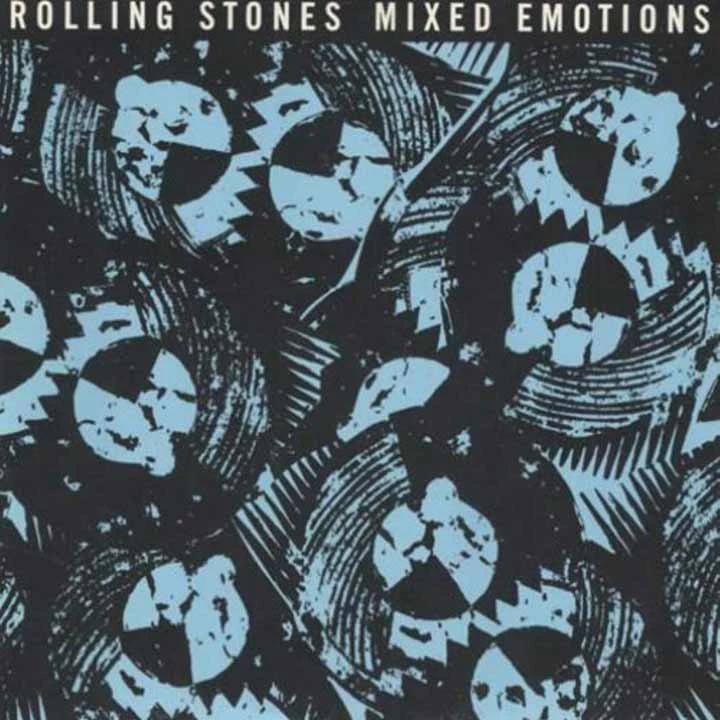
Bill Wyman to Auction Amp That Got Him Gig With Rolling Stones
by Martin KieltyBill Wyman plans to auction the Vox AC30 amplifier that landed him the gig with the Rolling Stones in 1962.
The amp will be one of a wide range of lots that will be offered by Julien’s Auctions in Beverly Hills from May 29-31. Before that, the items will be exhibited for free in Ireland (at the Museum of Style Icons in Newbridge from March 10-April 20), New York (Hard Rock Cafe, May 4-10) and Beverly Hills (Julien’s Auctions Gallery, May 18-28).
Describing the AC30 as “one of the most significant pieces from Rolling Stones history to be offered at this auction,” Julien’s noted that "the important and historic amplifier is one of the reasons Wyman was asked to join. … On the fateful day of his audition in 1962, the band became not only interested in his musical skills but in his amplifier, which sealed the deal.”
“Bill had amplifiers!" Keith Richards confirmed. "Bill came fully equipped. A Vox AC30 amplifier, which was beyond our means to possess … we used to worship it. We used to look at it and get on our knees. To have an amplifier was crucial. First off, I just wanted to separate Bill from his amplifier. But that was before he started playing with [drummer] Charlie [Watts].”
“Collecting and archiving has been one of the great pleasures of my life and will undoubtedly be one of my legacies," Wyman noted. "It feels like the right time to share my archive with the world. I hope people will get as much joy from my collections as I have. ... It is easier to let these items go knowing that a portion of the proceeds from this sale will support three causes that are close to my heart: the Prince’s Trust, Macmillan Cancer Support and Central Caribbean Marine Institute, who are at the forefront of restoring the health of the world’s reefs and oceans.”
Other items offered include a number of bass guitars, an amp Wyman used during the recording of Exile on Main St., a gold and black stage outfit from the ‘70s, a silver disc award and an early program from a London show featuring the Stones and the Beatles. You can find more information at the Julien’s Auctions website.
The Best Song From Every Rolling Stones Album

'The Rolling Stones' (1964): "Tell Me (You're Coming Back)"
The only song on the Stones' debut album credited to Mick Jagger and Keith Richards, and the first indication they were more than just another British band playing American blues music. "Tell Me" is pretty much their initial foray into pop music too. They were rewarded with their first U.S. Top 40 single.

'The Rolling Stones No. 2' (1965): "Time Is on My Side"
There are two versions of this cover from R&B singer Irma Thomas. One starts with an organ and appears on the U.S. album '12 X 5'; the other, found on the Rolling Stones' second U.K. LP, features a guitar at the beginning and was recorded during sessions at Chicago's Chess Studios. They're both great, but this one is just a bit more focused.

'Out of Our Heads' (1965): "(I Can't Get No) Satisfaction"
The Stones' U.K. and U.S. album catalogs still weren't lining up in 1965, so this one's kinda tricky. "(I Can't Get No) Satisfaction" didn't appear on the U.K. version of 'Out of Our Heads,' but is on the U.S. one, which came out two months earlier. So we're bending the rules a bit and going with the U.S. release because the song is such a significant part of the band's history. Plus, we prefer the U.S. edition of the LP since it came out first and includes a tighter track listing.

'Aftermath' (1966): "Paint It, Black"
We're bending the rules again for the Stones' fourth album (sixth in the U.S.). This No. 1 hit wasn't included on the U.K. version of 'Aftermath' but opened the U.S. edition, where it signaled a major leap for the band. Among its notable achievements, it was the first song to reach the top of the chart to feature a sitar. A new era was right around the corner.

'Between the Buttons' (1967): "Let's Spend the Night Together"
We're going with the U.S. version of a Rolling Stones album for the last time with 1967's 'Between the Buttons,' which we actually prefer – mainly because it adds the two songs from the group's "Let's Spend the Night Together" / "Ruby Tuesday" single. They make the Stones' fifth album (seventh in the States) a more accessible record. They're both great; "Let's Spend the Night Together" drives a little harder.

'Their Satanic Majesties Request' (1967): "She's a Rainbow"
The first Rolling Stones album to have the same track listing in the U.K. and the U.S. was their occasionally messy and misguided contribution to the Summer of Love. 'Their Satanic Majesties Request' is no 'Sgt. Pepper's,' but it's not awful either. Still, it takes some patience to wade through it all. The big exception: "She's a Rainbow," a candy-colored single with Mellotron, celesta, a string arrangement by future Led Zeppelin bassist John Paul Jones and a monster hook.

'Beggars Banquet' (1968): "Sympathy for the Devil"
The Stones entered a whole new era on 'Beggars Banquet,' a stripped-down, blues-informed reaction to the previous LP, 1967's kaleidoscopic/psychedelic overload 'Their Satanic Majesties Request.' "Sympathy for the Devil,' the opening track on 'Beggar's Banquet,' set the stage for darker and more sinister days to come. It's also a six-minute distillation of where the rest of the '60s was headed.

'Let It Bleed' (1969): "Gimme Shelter"
A year after the Stones got back to basics and portended dark changes ahead, the storm hit. Their eighth album sounded like a requiem for the '60s as the decade limped through its final weeks. "Gimme Shelter," the album's opening track, said it all in its first line: "A storm is threatening my very life today." Few songs have been this prophetically powerful.

'Sticky Fingers' (1971): "Brown Sugar"
The Rolling Stones entered the '70s by getting horny: The opening song on 'Sticky Fingers' features Bobby Keys' distinctive saxophone honking over Mick Jagger's tale of sex, slavery and drugs. The decade also ushered in a new era of hedonism, success and freedom. "Brown Sugar," in a way, manages to wrap all of this into less than four minutes. One of the band's all-time classics.

'Exile on Main St.' (1972): "Tumbling Dice"
The double-LP 'Exile on Main St.' was notoriously recorded in a haze of excess and drugs. It's hard to separate the stories from the music these days, the two are so intertwined. It doesn't help that the record sounds like it was recorded under several pounds of sludge. Nevertheless, it's the Stones' best album, recommended heard in full and in order. "Tumbling Dice," the lead single, stands out for its relative radio friendliness.

'Goats Head Soup' (1973): "Angie"
After one of popular music's greatest creative runs, the Stones – addled by drugs, exhaustion and the work that went into being the greatest rock 'n' roll band on the planet – entered a period of so-so records and bloated extravagance. The murky 'Goats Head Soup' is buoyed by its first single "Angie," a pretty acoustic ballad primarily written by Keith Richards.

'It's Only Rock 'n Roll' (1974): "It's Only Rock 'n Roll (But I Like It)"
The title track to the Rolling Stones' 12th album is one of the few highlights from an era when the band was sinking beneath the weight of its myth and excesses. It took a few years before they fully recovered; "It's Only Rock 'n Roll (But I Like It)" kept them going for the time being.

'Black and Blue' (1976): "Memory Motel"
At the time, 'Black and Blue' was the Rolling Stones' worst album. It's still not very good. A disco song and a soul ballad were pulled as the LP's two singles, but its best song is the seven-minute gloom-fest "Memory Motel." No surprise radio stayed away from this melancholy number. But it's the album's centerpiece – and one of the few songs in which Mick Jagger and Keith Richards share lead vocals.

'Some Girls' (1978): "Miss You"
After a few years of mostly underwhelming albums, the Rolling Stones returned with their best since 'Exile on Main St.,' spurred by the simultaneous disco and punk movements. "Miss You," the lead single, opening track and best song on 'Some Girls,' aimed for the dance floor but still manages to shake loose some Stonesy grit. It was their last No. 1 single, but they had one more great album in them.

'Emotional Rescue' (1980): "Emotional Rescue"
The band's first album of the '80s is pretty much a sequel to its last album of the '70s. But 'Emotional Rescue' doesn't have 'Some Girls'' songs, though the title track – like "Miss You," another disco-inspired single -- stands out. Mick Jagger's falsetto gives it some distinction, unlike most of the album's other songs.

'Tattoo You' (1981): "Start Me Up"
The Rolling Stones' last great album was pieced together from leftover songs dating back to 1972. Not that 'Tattoo You' sounds like a collection of outtakes; with the exception of 'Some Girls,' it's their best album since 'Exile on Main St.' "Start Me Up," the opening song and first single, is classic Stones, starting with a killer guitar riff. They haven't topped it since.

'Undercover' (1983): "Undercover of the Night"
Following the vault-cleaning 'Tattoo You,' the Rolling Stones returned with their first real album of the '80s, and they jumped head-first into the new era with their most musically adventurous work since the late '60s. Too bad the songs rarely matched up to these ambitions. The exception is the politically strident "Undercover of the Night," a percussion-heavy single aimed at the MTV generation. It wasn't a hit – neither was the album, the first Stones LP since the '60s to not reach No. 1.

'Dirty Work' (1986): "One Hit (To the Body)"
The Stones were in pretty bad shape by the mid '80s. The main creative team of Mick Jagger and Keith Richards was barely talking to each other, and their 18th album, 'Dirty Work,' was roundly dismissed by critics and fans. Even the album's best song, the semi-spirited opener "One Hit (To the Body)," doesn't make much of an impression. (That's Jimmy Page playing the guitar solo.) It says much about the period that the LP's lead single was a tired cover of the 1963 non-hit "Harlem Shuffle."

'Steel Wheels' (1989): "Mixed Emotions"
After the disastrous 'Dirty Work' (the worst Rolling Stones album? Maybe), the band regrouped three years later in a better place. For starters, it sounded like they liked each other a little bit, evident on the album's first single, "Mixed Emotions," one of the few songs recorded in the '80s worth their legend. Some luster has worn off since the release of 'Steel Wheels,' but "Mixed Emotions" is still a keeper.

'Voodoo Lounge' (1994): "Love Is Strong"
At the time, 'Voodoo Lounge' marked the biggest gap between Rolling Stones albums: five years. And it certainly started out promising enough with the opening "Love Is Strong," a throwback of sorts to the band's dick-swinging heyday. But it barely cracked the Hot 100 – their lowest-ever showing for a first single from a new album – and the rest of the LP quickly settled into latter-period lethargy.

'Bridges to Babylon' (1997): "Anybody Seen My Baby?"
The album is one of the Stones' most forgettable; the first single is a little better. But it's one of the band's oddest songs: It features a sample (from hip-hop artist Biz Markie), production by Beastie Boys collaborators the Dust Brothers and, after it was released, a songwriting credit to k.d. lang – whose 1992 hit "Constant Craving" shares a similar melody. Still, not bad as far as '90s Stones songs go.

'A Bigger Bang' (2005): "Streets of Love"
This Stonesy ballad, which musically nods to their past, was released as a double A-side single (with "Rough Justice") before 'A Bigger Bang' came out. Neither song did much, but "Streets of Love" sounds enough like their old classic slow cuts to stand out here. Plus, it builds to the most energized they'd sounded on record in years.

'Blue & Lonesome' (2016): "Just Your Fool"
The Stones' 2106 return to the blues – all covers of artists who influenced them during their formative years – was also one of their strongest LPs in a couple decades. They sound positively unshackled at times, working through some of their favorite songs. The best of them is the one that kicks it all off: Little Walter's "Just Your Fool," 136 seconds of harp-blowing, guitar-slinging rawness the band hadn't exhibited since the mid '70s.